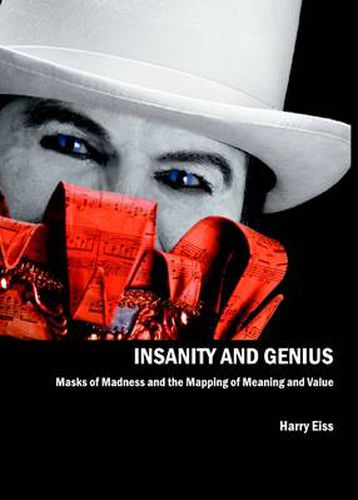Readings Newsletter
Become a Readings Member to make your shopping experience even easier.
Sign in or sign up for free!
You’re not far away from qualifying for FREE standard shipping within Australia
You’ve qualified for FREE standard shipping within Australia
The cart is loading…






Pablo Picasso said We all know that Art is not truth. Art is a lie that makes us realize truth, at least the truth that is given us to understand. John Keats expressed the same in the climactic couplet of his poem, Ode on a Grecian Urn, when he wrote, Beauty is truth, truth beauty,–that is all / Ye know on earth and all ye need to know.
On September 8, 1888, Vincent Van Gogh, referring to his painting The Night Cafe, wrote in a letter to his brother Theo: I have tried to express the terrible passions of humanity by means of red and green.
This is what I have struggled with, this higher truth, and its messengers: drama, dance, sculpture, painting–all of the arts, and such other disciplines as philosophy, theology, psychology and neurology. It is what led me, innocent of all the implications and reasons for it, to first submerse myself in literature, music and drawing in my desperate search for meaning as a child following my father’s death.
In his book about the discovery of the structure of DNA, James Watson wrote, So we had lunch, telling ourselves that a structure this beautiful just had to exist. Indeed, the question most often asked by scientists about a scientific theory is Is it beautiful? Yes, truth equals beauty. Scientists know, mathematicians know.
But the beauties, the truths of math and science were not the truths I needed as a child, and I intuitively knew it, intuitively knew that the truths I needed come from a different way of knowing, a way of knowing not of the world of logic and reason and explanation (though they help lead us to it), but rather a way of knowing that is of the world of expression, a world that takes us to what is just beyond the grasp of logic.
That is what this book is all about. It is an exploration of the greatest minds of especially the past two centuries and how they have struggled to find the deepest truths about the human condition.
$9.00 standard shipping within Australia
FREE standard shipping within Australia for orders over $100.00
Express & International shipping calculated at checkout
Pablo Picasso said We all know that Art is not truth. Art is a lie that makes us realize truth, at least the truth that is given us to understand. John Keats expressed the same in the climactic couplet of his poem, Ode on a Grecian Urn, when he wrote, Beauty is truth, truth beauty,–that is all / Ye know on earth and all ye need to know.
On September 8, 1888, Vincent Van Gogh, referring to his painting The Night Cafe, wrote in a letter to his brother Theo: I have tried to express the terrible passions of humanity by means of red and green.
This is what I have struggled with, this higher truth, and its messengers: drama, dance, sculpture, painting–all of the arts, and such other disciplines as philosophy, theology, psychology and neurology. It is what led me, innocent of all the implications and reasons for it, to first submerse myself in literature, music and drawing in my desperate search for meaning as a child following my father’s death.
In his book about the discovery of the structure of DNA, James Watson wrote, So we had lunch, telling ourselves that a structure this beautiful just had to exist. Indeed, the question most often asked by scientists about a scientific theory is Is it beautiful? Yes, truth equals beauty. Scientists know, mathematicians know.
But the beauties, the truths of math and science were not the truths I needed as a child, and I intuitively knew it, intuitively knew that the truths I needed come from a different way of knowing, a way of knowing not of the world of logic and reason and explanation (though they help lead us to it), but rather a way of knowing that is of the world of expression, a world that takes us to what is just beyond the grasp of logic.
That is what this book is all about. It is an exploration of the greatest minds of especially the past two centuries and how they have struggled to find the deepest truths about the human condition.